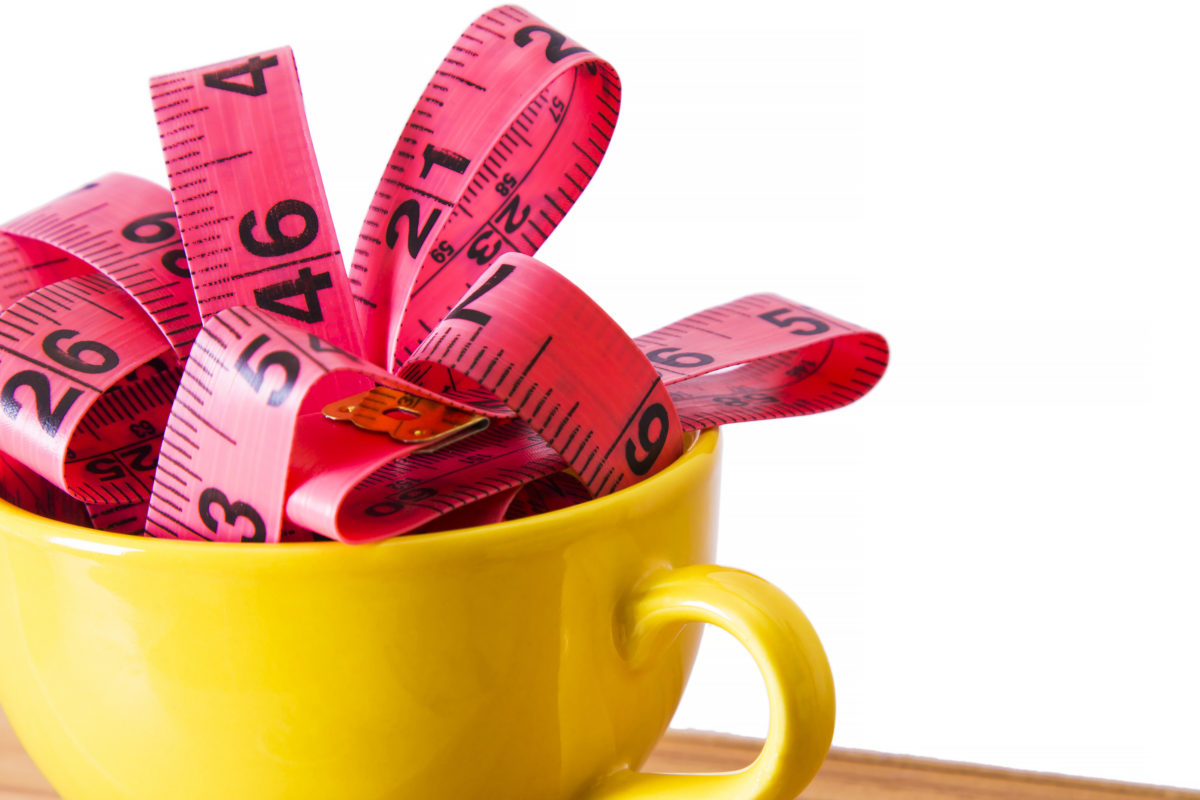Bad news: Tea doesn’t make you lose weight.
Good news: Tea helps you lose weight

The question is old and simple: Does drinking green tea directly create weight loss? The answer is not at all simple and it hasn’t changed:
- Among scientific researchers, the dominant conclusion is that at best the evidence is inconclusive; any weight loss is small and temporary and most studies find no cause-effect link.
- Medical practitioners emphasize the limits and risks, especially of tea supplements, extras and detox tea. Their concentrations and inclusion of herbs, extracts and stimulants may jolt the body into some degree of weight reduction, but there are many reports of liver damage, misrepresentation of ingredients, and poor quality control.
- Nutritionists stress the need for a broader lifestyle approach to using tea as a weight aid. They see it as part of a broader program of healthy diet and lifestyle change.
- Many health advocates are convinced that the case is proven, from the accumulation of experience. They point to the long traditions of Asian medicine and its skilled use of herbs.
- There’s a whole weight loss industry that is built on the conviction that tea is highly effective and that moves on to rating or promoting the best: “20 Teas That Melt Belly Fat”, “Miracle Weight Loss Teas.”
The overall answers to the original question thus add up to what Men’s Health magazine entertainingly calls a “resounding sort of…” There is no conclusive evidence but widely varying claims.

There’s a more useful perspective. Shift the focus from the tea-weight loss link to the reverse. Instead of examining if tea causes weight loss, focus on where there is clear evidence of weight loss and identify if and where tea is a contributor. What lessons can we learn from the experience of people whose very livelihood depends on keeping their weight down, often at the daily level, while remaining strong and fit? Where does tea fit into their dietary regimes? Examples are jockeys, many types of athlete and dancers. Call them Keep Light professionals.
Here’s the picture that emerges from a wide variety of sources, ranging from professionals in these fields, nutritional experts and limited surveys:
First and most key is that tea is seen as an enabler — not a direct causal force. It’s a breakfast building block for getting a good start to the day. It helps wake up the taste buds with a pleasant flavor and aroma. Tea offers a light nutritional balance, an energy boost and a relaxed sense of mind.
Keep Light pros generally take just a single cup at breakfast and don’t routinely consume tea during their workday. They are very sensitive to the need for hydration, relying on water. The small morning tea drink contains a light amount of caffeine, which helps in stimulating the body and mind. This comes without the complications of caffeine, whose effects are very individual and, though safe for almost the entire population, presents risks for some and is disruptive to others’ daily routines.
None of the publications reviewed for this article recommends even two cups at a time or multiple cups a day. Green tea is preferred mainly for being pleasant and smooth to sip, but black tea, sugar and milk are often recommended – in small amounts of one cup – to balance energy and calming.
There’s a clear consensus that tea stimulates the body’s mechanisms to start burning up some calories. The simple reality is that weight loss is a function of calories taken in minus calories out. Nutritionists frequently stress that the main value of tea is helping reduce calories in.
Generally, for weight loss, this begins with avoiding bad calories, ones that just clog up and slow your body down, and cutting way down on sugar, junk food and fats. The importance of a diet with fresh vegetables is almost a mantra in any discussion of tea and wellness. One of the main arguments in favor of tea as part of your weight regimen is that it is one of the most convenient ways to get consume key flavanols in a compact form.
The Stay Light literature does not generally recommend herbal teas, detox teas or green tea extracts. This is in direct contrast to many of the tea weight loss promises, which too often are little more than crash diets, most of which are not in fact tea but herbal mixes. There is one called ballerina’s tea that real dancers are warned against. It’s a straight laxative purge and “colon roto-rooter.” It’s not tea. Tea contains a small amount of caffeine.
A typical alert from the American Heart Association (2016) warns that natural cold remedies, supplements, herbal compounds and green tea pose a danger to heart patients, including weakening their heart muscles and increasing sodium and fluid retention. The interaction of herbal brews and medications is a regular topic: ibuprofen, valerian and even chamomile pose many hidden risks that fall outside the FDA’s regulatory oversight.
| Source | Milligrams of flavanols |
| Kale | 60-120 per serving |
| Broccoli | 8-20 per serving |
| Blueberry | 3-16 per serving |
| Apricot | 5-10 per serving |
| Beans | 2-10 per serving |
| Tomato | 0.4-3 per serving |
| Parsley | 1.2-9.2 per serving |
| Black tea | 6-9 per serving |
| Green tea | 4-7 per serving |
A major implication for people in their everyday life is that while the scientific evidence does not support claims about its direct impacts on weight, in its basic form with no additives, “natural” flavors or herbal ingredients, it has no apparent negative side effects. It is by far the best beverage choice for weigh management. Compare it to: colas with sugar, high caffeine coffee, lead-laden iced tea and bottled drinks, and of course alcohol.
The chart above presents a selection of recommended healthy fresh vegetables, anti-oxidants and other wellness compounds. Some are much higher in flavanols per serving that tea but how often are you going to eat broccoli and beans per week. If you drink just three cups of black tea a day, you will get more nutritional value than from tea – roughly 180 milligrams – than from a typical mix of meals. And do you even like curly kale?
The overall message about tea and weight loss is to look after your diet first plus, preferably, exercise and use tea to leverage this.
Don’t expect tea to do the job for you.
 Click here to see all the articles in the Health & Wellness Issue
Click here to see all the articles in the Health & Wellness Issue